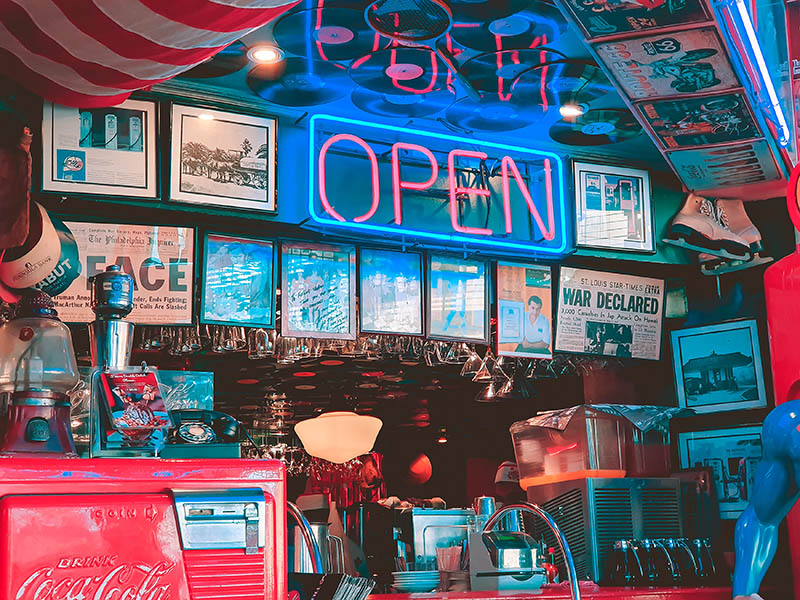The extension of the month-long enhanced community quarantine (ECQ) in Luzon brings a new set of challenges for citizens and businesses. As soon as the extension was announced, people flocked to groceries, markets, convenience stores, and drug stores to stock up on supplies for another two weeks. Since then, more foodservice businesses have either offered delivery and takeout or made ready-to-cook products available for public consumption.
The safety precautions implemented during the start of ECQ still remain in place until the extension ends, with movement still restricted to essential trips. But over the past week, there have been large-scale disruptions in terms of practicing social distancing and other quarantine protocols.
On Apr. 8, Starbucks Philippines opened some of its branches for drive-thru operations, which resulted in long lines in its Taguig and Pasig branches. The next day, Starbucks issued a statement to once again pause operations in a bid to safeguard and protect its staff and customers.
Essential businesses are those that provide the public with the necessities they need to survive.
On the same day, the Quezon City government gave an update regarding the operations of the Balintawak Market where a multitude of shoppers flocked to buy essentials while seemingly forgetting to practice social distancing. It was reported that there were seven individual markets in operation flooded by shoppers despite the fact that mobility was strictly monitored by the QC Police District and the Market Development and Administration Department. The statement also warned market owners that non-compliance with quarantine measures could lead to the lockdown of the entire Balintawak Market.
On Apr. 12, the local government had stopped retail operations for the market in an attempt to control crowds, only allowing wholesale and product drop-offs.
Defining essential businesses
The COVID-19 pandemic has introduced a new normal. Good hygiene habits and proper sanitation have become as important as eating, livelihood, and exercise; conversations exist entirely online, and businesses have now been divided into two: essential and non-essential.
Essential businesses are those that provide the public with the necessities they need to survive. In a pandemic, these are groceries and financial, pharmaceutical, and healthcare establishments. These types of businesses have remained operational while adhering to sanitation and safety measures.
In contrast, non-essential businesses are those that people frequent for entertainment like gyms, cinemas, malls. and museums.
In contrast, non-essential businesses are those that people frequent for entertainment like gyms, cinemas, malls. and museums. Non-essential businesses have been temporarily shut down to avoid becoming a hub for unnecessary social interaction and possible virus transmission.
While considered an essential business under normal circumstances, public transportation has also been halted in order to avoid large crowds. As an alternative, the Pasig City government, for example, declared bikes as an essential mode of transportation Provisions of the executive order also allowed bicycle repair and maintenance shops to operate during the lockdown.
And although bars and restaurants are loosely considered non-essential, a short-term solution was to tweak their business models to fit into the limits of the quarantine, offering takeaway and delivery services or making uncooked menu items available for the public to order and cook in the safety of their own homes.
While the majority of essential businesses listed are agreed upon by many to be truly essential during a pandemic, each city or country can also determine what businesses can be considered essential and therefore be allowed to operate.
While the majority of essential businesses listed above are agreed upon by many to be truly essential during a pandemic, each city or country can also determine what businesses can be considered essential and therefore be allowed to operate.
Various local government units in the Philippines have deemed alcohol as a non-essential product, imposing a liquor ban for the duration of ECQ. However, the UK and Australia have yet to ban the sale and consumption of alcoholic beverages, although experts warn against consuming more than necessary over fears of the effects of alcoholism.
In Florida, World Wrestling Entertainment has been deemed an essential business, allowing the company to continue its live TV broadcasts. In France, boulangeries remain open so the French can continue getting their daily supply of bread and pastries. Wine and cheese shops remain operational as well. Belgium has also deemed French fry establishments essential during the pandemic although restaurants and cafes remain closed. In Singapore, vehicle recovery shops are allowed to operate alongside hardware stores for repairs and supplies although labor force is limited to core essential staff.
Although differences between essential and non-essential businesses vary throughout regions, there is one thing in common: the responsibility to ensure the safety of staff and consumers by adhering to strict quarantine and social distancing measures.





